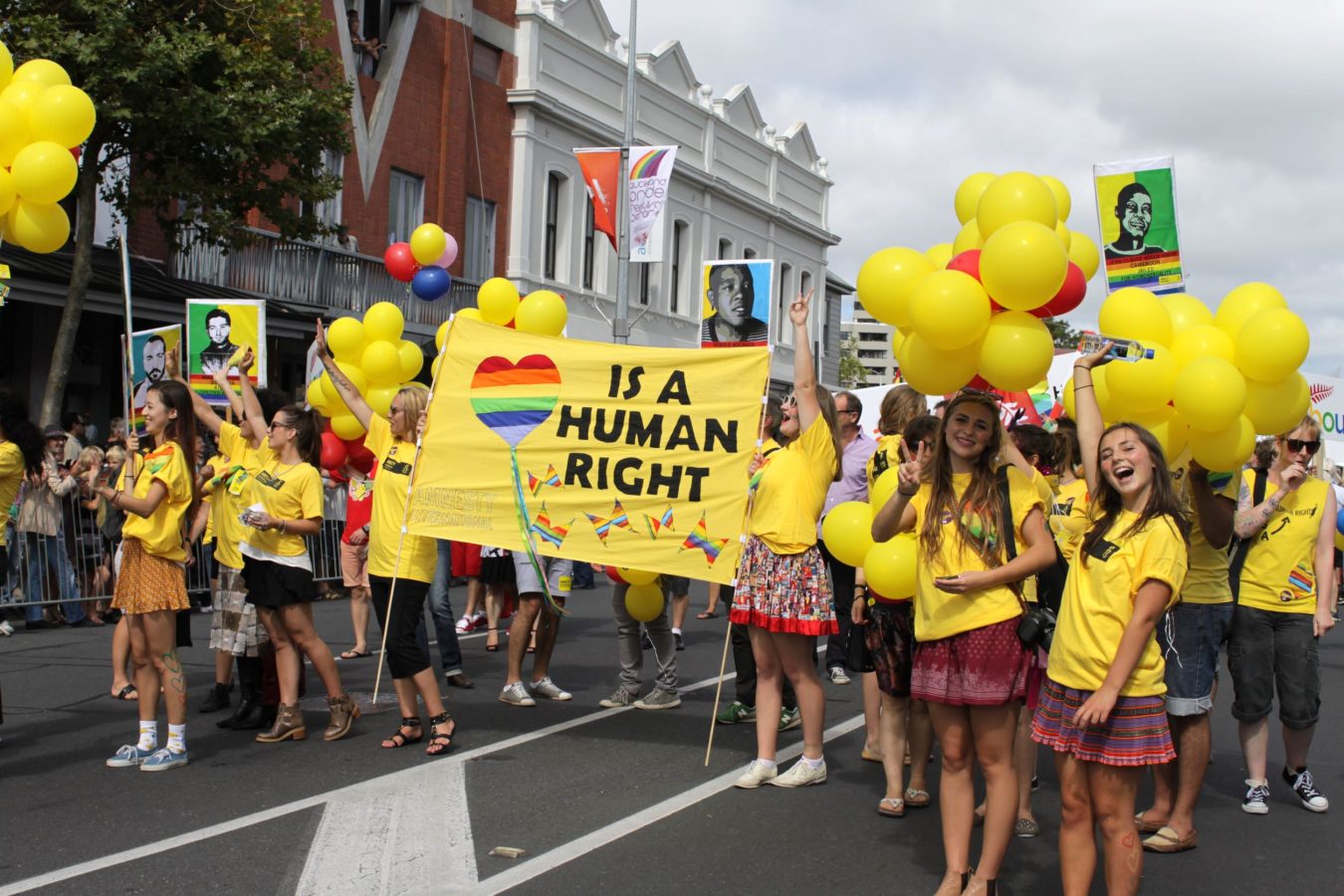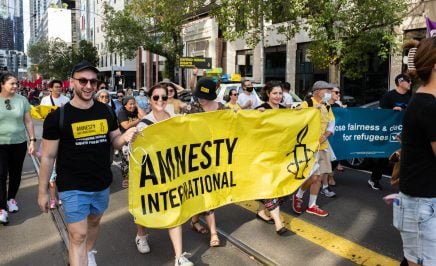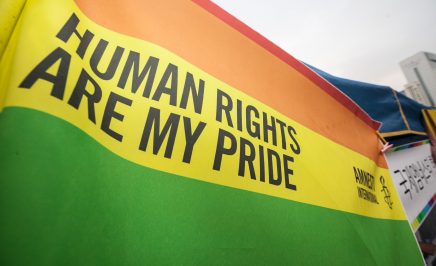Australia doesn’t have a Human Rights Act that protects human rights in law — it‘s the only liberal democracy in the world without one.
Human rights are the fundamental freedoms and protections that belong to all of us, ensuring everyone is treated equally, justly and with respect. Rights are about being treated, and treating others fairly and ensuring everyone has the ability to make choices about their own lives.
Current status of human rights in Australia
Which of our human rights are protected?
Australians currently enjoy very few legal protections for their basic rights.
Currently, Australia has anti-discrimination laws that only protect people from discrimination on the basis of their sexuality, gender, age, race, and disability. They do not protect all our rights, including our right to access healthcare, to an education, to a healthy environment, and the rights of children.
That means if you, or someone you love, suffers a human rights abuse, there’s not much you can do to hold those responsible accountable, or to get remedies for those abuses.
So, what can you do if your human rights are abused?
The short answer is not a lot.
If you complain about an abuse, the Australian Human Rights Commission (AHRC) can investigate. If that complaint isn’t resolved through a conciliation process, then complaints about discrimination may be taken to court. If your complaint involves a right that’s not the right to live free from discrimination, there’s nothing more you can do.
The current system is fundamentally flawed and doesn’t prevent human rights abuses from happening.
The time to protect human rights is now
Housing crisis
Australia is in the midst of a housing crisis. As a renter, there isn’t much you can do if you’re threatened with eviction. National laws should protect the right to housing, so you have the ability to challenge forced evictions.
A Human Rights Act would put the power back in your hands and guarantee your right to housing, healthcare, education, and more.
Robodebt
From 2016 to 2019, the Morrison government issued 450,000 unlawful and incorrect robodebts. People were harassed by debt collectors and paid thousands of dollars, adding pressure at a time when Australians were struggling to keep up with the rising cost of living.
A Human Rights Act would require the government to consider the human rights impacts on vulnerable Australians before roll-out, and could have provided safeguards to help prevent robodebt to protect rights to social security and a decent standard of living.
Aged care
The findings of the Aged Care Royal Commission in 2021 laid bare the abuses so many older people face in Australia under the aged care system. Abuse and neglect, sexual abuse, the use of chemical restraints.
A Human Rights Act would protect our rights in laws so older people and their families can challenge abuses, and ensure the right to safe, high quality care and services, to always be treated with dignity and respect, and to enjoy their lives in freedom and safety.
The Religious Discrimination Bill: LGBTQIA+ rights
In 2021, the Morrison government proposed the Religious Discrimination Bill supposedly protecting religious people from discrimination. In reality, it would give religious people the right to discriminate against others.
That Bill threatened LGBTQIA+ people, women, people with disabilities, and even other people of faith, and is a good example of how Australia’s patchwork of human rights protections don’t protect all our rights. Australia’s anti-discrimination laws don’t protect people from discrimination on the basis of their religious beliefs.
A Human Rights Act, by contrast, would protect people against discrimination based on their religious beliefs, but also protect the rights of LGBTQIA+ people, people with disabilities, and women.
Our vision for human rights: A Human Rights Act
What would a Human Rights Act actually do?
A single, national Human Rights Act would benefit all of us.
It would protect the rights of all Australians, giving us a tool to fight for the fundamental rights and freedoms that belong to all of us. It would also hold those in power to account, forcing the government to consider human rights in their laws, policies and practices.
A Human Rights Act will:
- Prevent human rights abuses by forcing the government to consider human rights when passing laws, making decisions about policies, and delivering services
- Provide an avenue for people to take action and challenge injustice when their rights are abused
- Provide remedies for people whose rights are abused
Examples of when a Human Right Act has worked
The ACT, Victoria, and Queensland already have their own Human Rights Acts. They’re a good guide for a national Human Rights Act, and show us how people can use one to challenge injustice and human rights abuses.
Our friends at the Charter of Rights coalition have compiled 101 cases that illustrate how people have used these laws to make concrete improvements to their lives.
Here are some case studies showing how with a Human Rights Act, we can create better lives for ourselves, our communities, and for those around us:
Safety of women and children
A single mother in Queensland was threatened with eviction after her ex-partner refused to leave their house. Tenants Queensland helped her draft a letter using the Queensland Human Rights Act, which led to a transfer of tenancy and the housing provider withdrawing the application to terminate her lease.
Access to education
In the ACT, the Human Rights and Discrimination Commissioner raised their concern that policies meant children and young people granted refugee status, and those seeking asylum, were charged for their education while living in Canberra. The Commissioner worked to develop new policies and procedures so that ACT public education is free for children and young people seeking asylum.
Accessibility of public transport
When escalators at a train station in Queensland were replaced by steep, inaccessible stairs, one older resident of the community made a human rights complaint using the Act. This led to an agreement that escalators would be installed.
Same-sex couples challenge unfair superannuation
A law that allowed people in same sex relationships could receive certain superannuation benefits if their partner died discriminated against older people in same sex relationships because it didn’t apply retrospectively. A woman used the Victorian Charter asking for the problem to be fixed and in response, the Government introduced changes allowing same sex couples to access the superannuation benefits retrospectively.
These are just a few examples of how A Human Rights Act is used to ensure the decisions and actions of our governments are guided by the values of freedom, equality and justice.
There’s support for a Human Rights Act
The good news is that, after almost a decade of inaction, we have the chance to make this happen:
- We know that 73% of Australians support a Human Rights Act. The Attorney General, Mark Dreyfus, has publicly expressed his support for Human Rights Acts.
- The Albanese government promised in their pre-election policy platform to review the current national human rights framework (aka the Anti-Discrimination Acts and the Human Rights Commission) and to ”consider whether it could be enhanced through a statutory charter of human rights” aka a Human Rights Act.
- When the Morrison government tried to pass that Religious Dscrimination Bill in February 2022, a lot of Labor MPs spoke out about the need for a Human Rights Act.
Over the next few years, we need to raise our collective voices to show more MPs that there’s widespread public support for an Act.
How you can take action
The government must legislate a Human Rights Act so that people have the power to take action when their human rights are violated, and so that everyone’s rights are respected and protected.
- Sign the petition calling on the Albanese government to legislate a Human Rights Act
- Add your name to make a submission to the inquiry by June. The government is conducting a crucial inquiry into Australia’s human rights framework right now. Let them know you support protecting all our human rights in law.
As a global movement of 10 million people, and 500,000 people in Australia, Amnesty International has the people power to build public support for a Human Rights Act. Learn more about what are human rights and our Human Rights Act campaign work.








